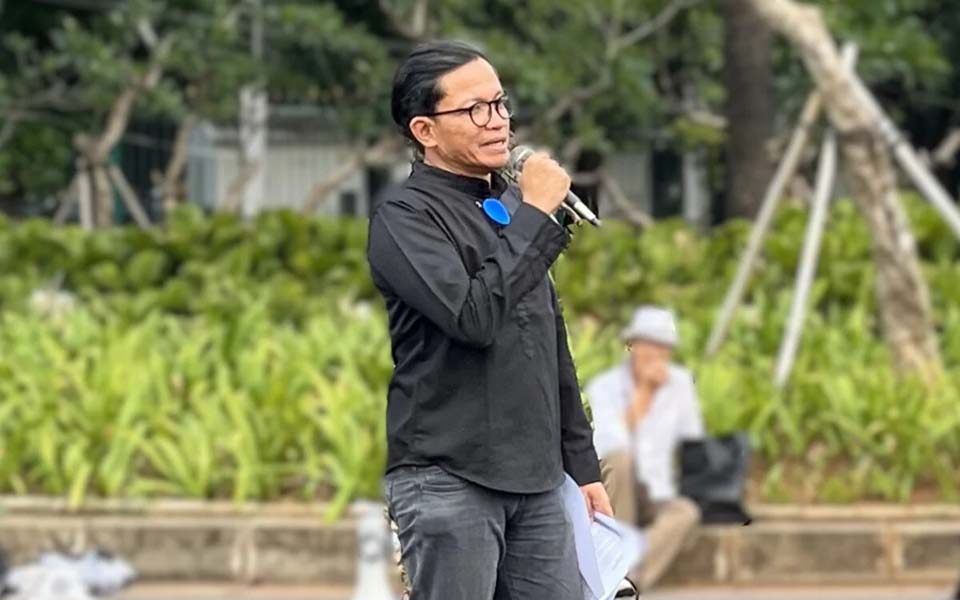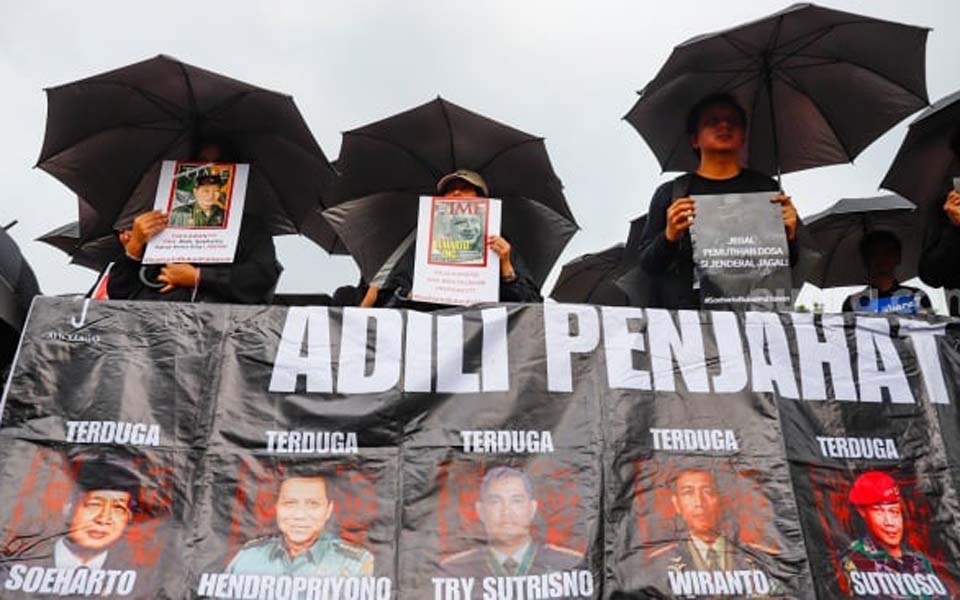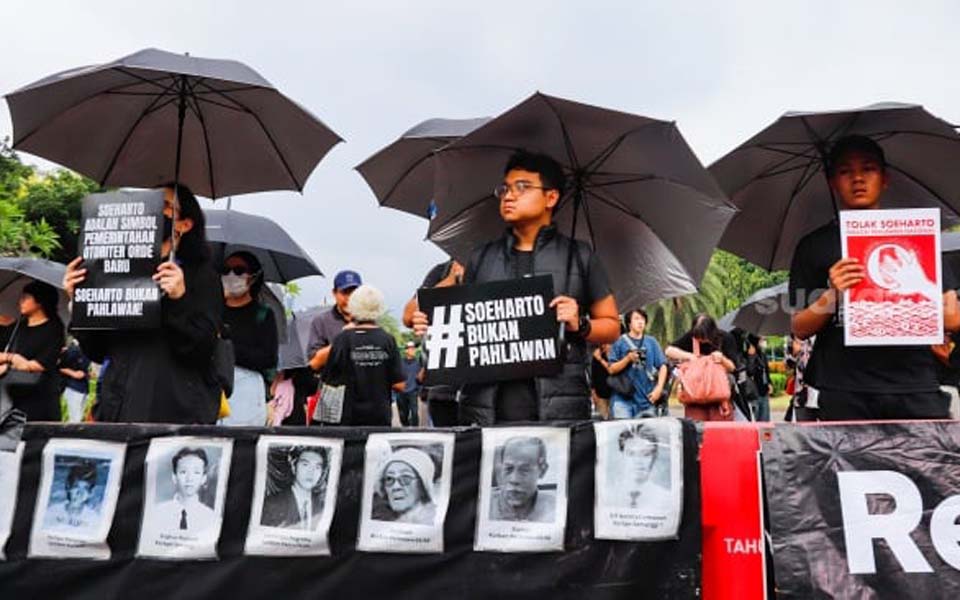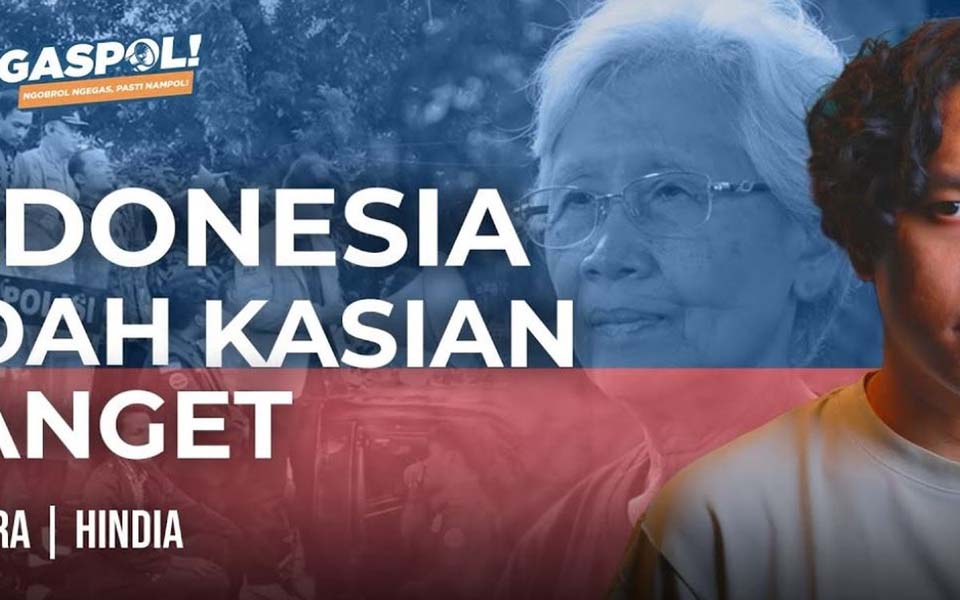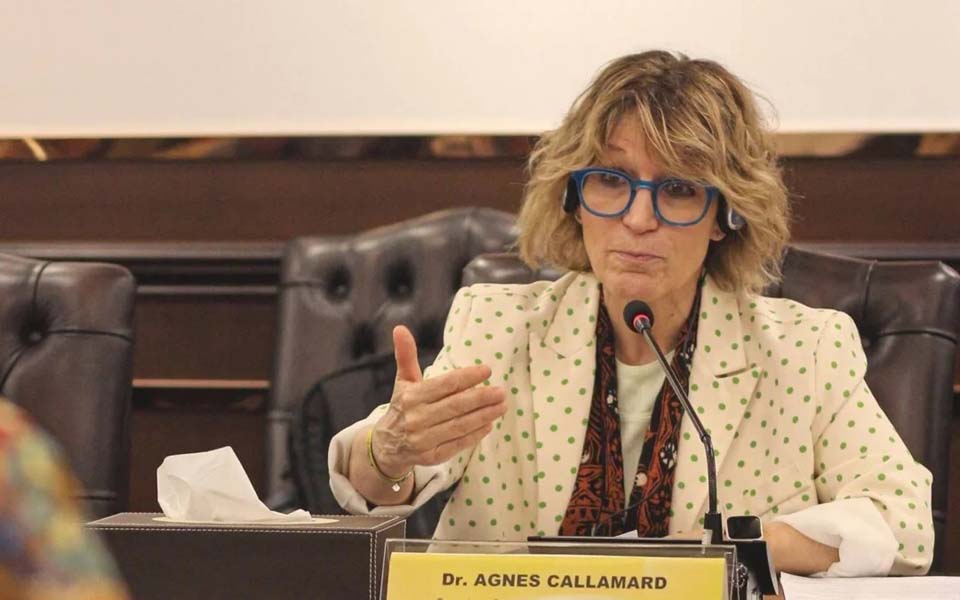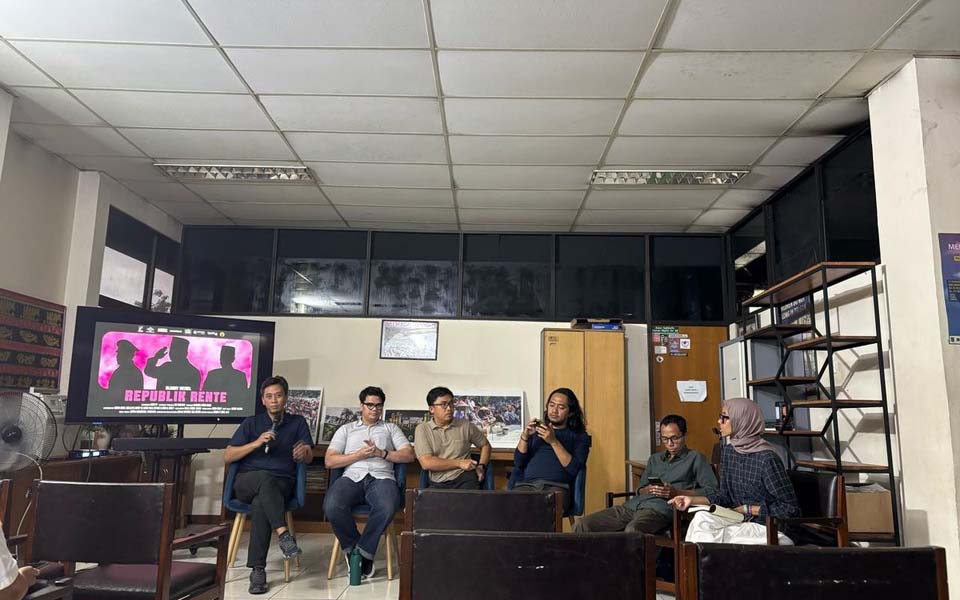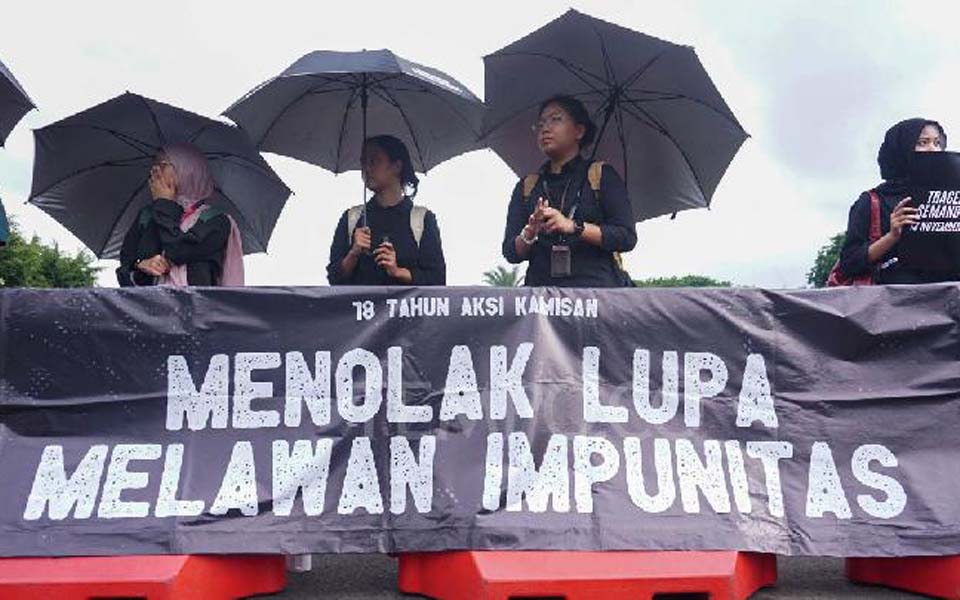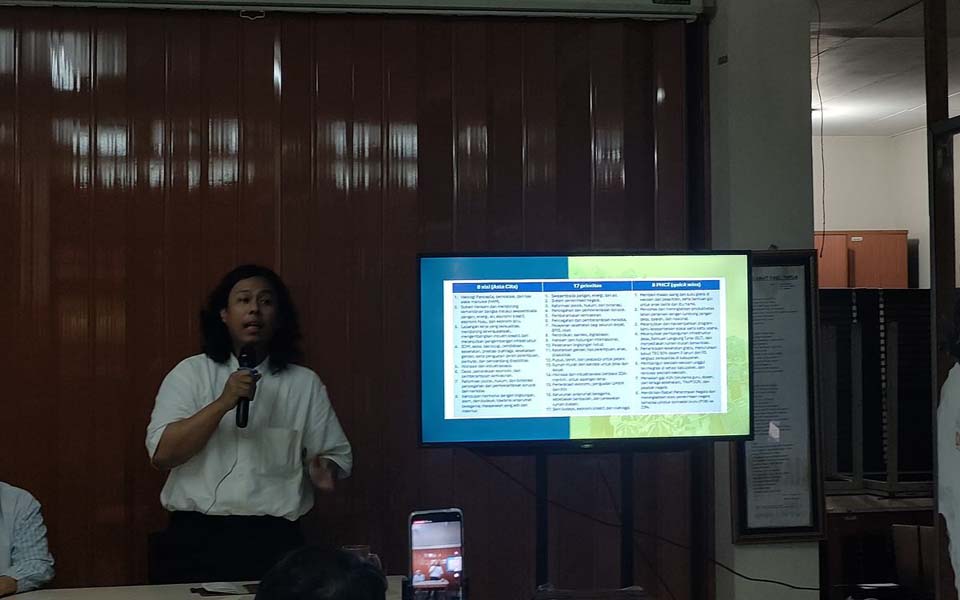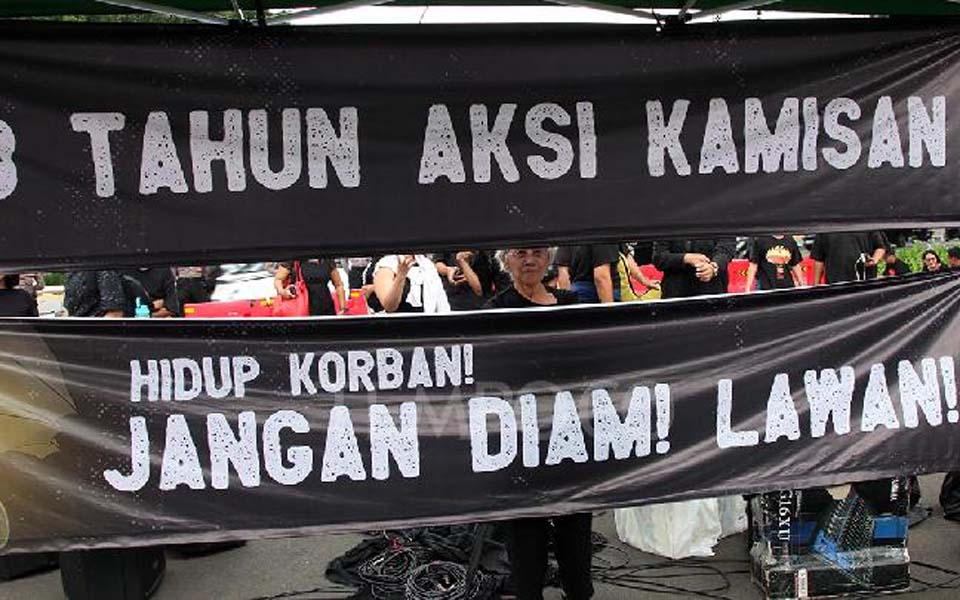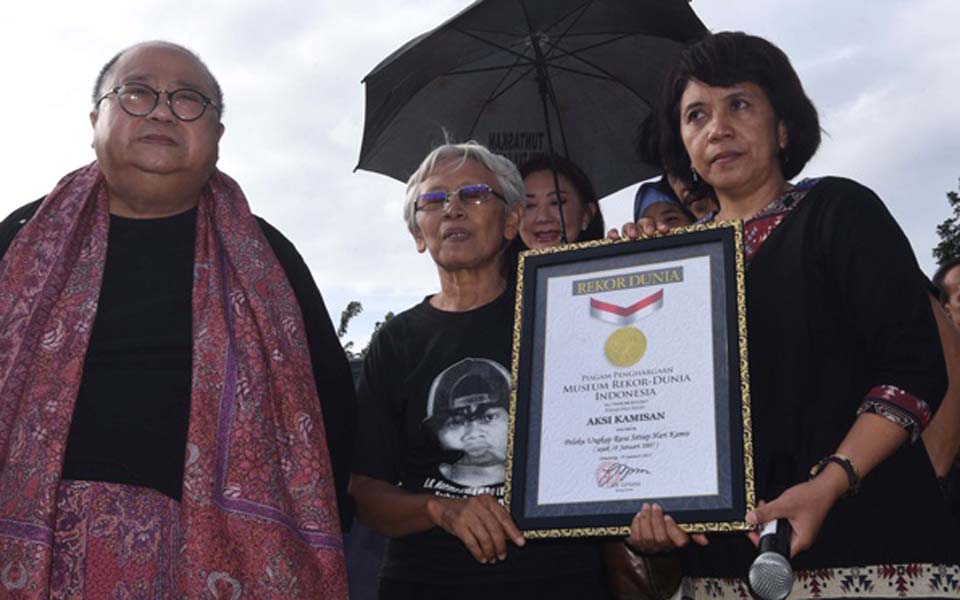Natalia Santi – Amnesty International Indonesia has emphasised that it is the state's responsibility to resolve the human rights violations that took place in the Semanggi I tragedy in 1998.
Although the Semanggi tragedy coincided with the enactment of People's Consultative Assembly Decree (TAP MPR) Number XVII/MPR/1998 on Human Rights, there has still been no justice for the victims.
The tragedy is a reminder of the student struggle during the era of reformasi – the political reform process that began in 1998 – against the authoritarian regime of former president Suharto and the military's dwi-fungsi (dual socio-political role).
Even though it has been proven that the bullets came from the security forces, the perpetrators and the field commanders have not yet been brought to trial.
Marking the 26th anniversary of the Semanggi tragedy, Amnesty International Indonesia Executive Director Usman Hamid recalled the struggle of the victims and their families to uphold human rights, primarily through the Kamisan (Thursday) actions, which are held every Thursday opposite the State Palace.
"The fight for justice is far from over. We will continue to demand accountability from the state, which has so far failed to uphold justice for the victims, and even seems to want to continue to cover up the 1998 incident as if it was not a gross human rights violation", said Hamid.
According to Hamid, former president Joko "Jokowi" Widodo's admission in January 2023 that 12 gross human rights violations occurred in Indonesia, including the Semanggi tragedy, is meaningless without legal measures.
Amnesty is asking the Attorney General to take concrete action to resolve the Semanggi I tragedy. Without law enforcement, said Hamid, recognition is empty rhetoric that does not respect the mandate of the reformasi.
The Semanggi I tragedy was a symbol of the demands by students and the ordinary people for change on November 11-13, 1998. The action was met with excessive force by the authorities resulting in the death of 17 civilians and hundreds more injured.
A year later, the Semanggi II tragedy on September 24, 1999, resulted in the death of 11 people during a student protest against a bill that was feared would give the Army more powers in emergency situations.
Hamid said that the Human Rights Court, born out of reformasi, had not succeeded in resolving cases of gross human rights violations.
The victim's families continue to fight for these cases to be heard in a Human Rights Court even though this has been hampered by decisions by the government and the House of Representatives (DPR). Meanwhile the Supreme Court has rejected appeals by the families of the victims.
Amnesty is demanding that Human Rights Courts be used in accordance with the mandate of Law Number 26/2000 on Human Rights Courts.
Hamid also emphasised the importance of respecting the struggle of the victims and families who are still waiting for justice. Amnesty hopes that the government, law enforcement officials and related authorities will immediately follow up on the mandate of the law on Human Rights Courts in order to realise justice for the victims.
[Translated by James Balowski. The original title of the article was "26 Tahun Tragedi Semanggi I: Negara Wajib Usut Pelanggaran HAM".]
Source: https://sinarharapan.id/26-tahun-tragedi-semanggi-i-negara-wajib-usut-pelanggaran-ham/





